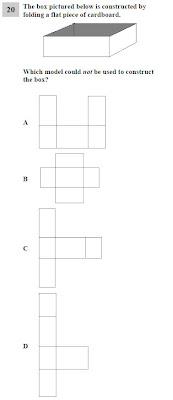 Short and sweet: how can I streamline my grading policy?
Short and sweet: how can I streamline my grading policy?I would like to make it clearer and cleaner. I'd also like for the grades to be a broad reflection of your performance throughout the class.
What would you change?
The official blog of Stowell's technology class.
Students say people mistakenly assume that online courses are easier.
"If anything, I think it might be harder," said Edward Elie, who takes course online and in-person at KSU.
Online courses have weekly quizzes or assignments, while traditional courses may only require an occasional exam, Elie said. Online courses lack the conversational tone a professor provides a traditional class, requiring students to depend more on the textbook. Also, students must be able to self-assess and determine whether they're learning the material or not.
 We practically worship non-conformity. From Apple's "Think Different" ad campaign to the "Change" theme of Pres. Obama, we have always rewarded those who think and do uniquely.
We practically worship non-conformity. From Apple's "Think Different" ad campaign to the "Change" theme of Pres. Obama, we have always rewarded those who think and do uniquely. Which brings use to our first lesson (assuming you are reading this during Week 1). Don't ever forget that, as a teacher, you know more about what you want to teach than your students. That's not to say that you are smarter than your students, only that you know what's in the lesson before they do.
Which brings use to our first lesson (assuming you are reading this during Week 1). Don't ever forget that, as a teacher, you know more about what you want to teach than your students. That's not to say that you are smarter than your students, only that you know what's in the lesson before they do. Using industry as a guide, they examine and explain how two main categories of innovation-- sustaining innovation and disruptive innovation-- have defined the the lay of the of those industries' landscape.
Using industry as a guide, they examine and explain how two main categories of innovation-- sustaining innovation and disruptive innovation-- have defined the the lay of the of those industries' landscape. For example, in my math class I am able to assemble a standards-aligned exam using database test-generating software that sorts items by standard, objective, and difficulty. Then, after students fill in their bubble sheets, I scan them and run detailed reports according to the same criteria.
For example, in my math class I am able to assemble a standards-aligned exam using database test-generating software that sorts items by standard, objective, and difficulty. Then, after students fill in their bubble sheets, I scan them and run detailed reports according to the same criteria. But, believe it or not, near the top of my list s good old Microsoft Word. If I can include the MathType add-on, that would seal the deal.
But, believe it or not, near the top of my list s good old Microsoft Word. If I can include the MathType add-on, that would seal the deal. 
 2. People are often less inclined to make face-to-face connections. In the era of Facebook and email, how easy is it to feel empowered to communicate behind your computer screen?
2. People are often less inclined to make face-to-face connections. In the era of Facebook and email, how easy is it to feel empowered to communicate behind your computer screen?